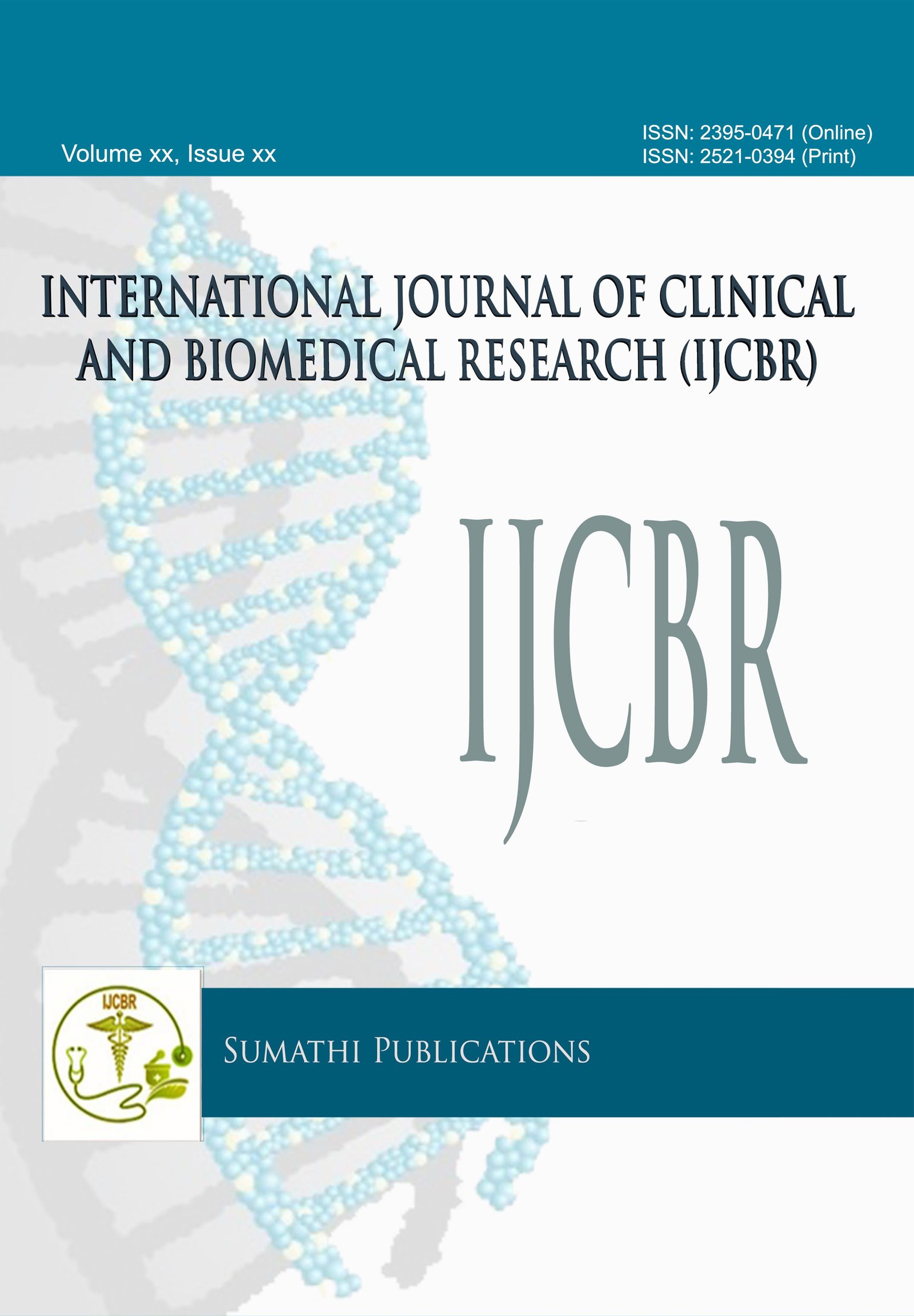Perception of Tuberculosis Treatment in Tribal area of Akole Block of Ahmednagar, Maharashtra
DOI:
https://doi.org/10.31878/ijcbr.2020.64.01Keywords:
Tuberculosis, Perception, Discrimination, Treatment Seeking Behavior, Tribal Population.Abstract
Introduction: The family’s knowledge and perception of any disease are essential conditions to formulate effective health policies to combat the disease. The tribal populations of India are likely to live discrete hard to reach geographic areas with their common cultural and socio-religious beliefs which are quite different from the general population. The present study was aimed to evaluate attitude with regards to the treatment of tuberculosis among the tribal community in Akole block of Ahmednagar District, Maharashtra. Methods: This was a qualitative cross-sectional study conducted in the tribal community. The study participants were subjected to a well-structured questionnaire which contained questions about the demographics and attitude of the patients concerning tuberculosis. Results: Twenty patients were included in the study, of which 12 (60%) were males while 8 (40%) were females. Majority of study participants opined that the treatment of tuberculosis should be free (19, 95%), agreed that they should disclose their illness to other people (17, 85%), were scared (12, 60%). Only 6 participants felt of being discriminated in the community. It was regarded by most of the participants that pregnant women won’t be affected by tuberculosis (15, 85%). Most of the study participants approached Private practitioner (11, 55%) and Public health care centre (8, 40%) initially, but preferred treatment from Governmental facility (18, 90%) upon the private facility (2, 10%). Conclusion: There has been a change in attitude and treatment-seeking behaviour of people of Tribal community with regards to tuberculosis. The community needs to be educated with regards to tuberculosis to alleviate fear and eliminate misconceptions. Control of TB in tribal areas continues to face some significant challenges.
Downloads
Downloads
Published
Issue
Section
License
The journal allows the author(s) to hold the copyright without restrictions and will retain publishing rights without restrictions.
The submitted papers are assumed to contain no proprietary material unprotected by patent or patent application; responsibility for technical content and for protection of proprietary material rests solely with the author(s) and their organizations and is not the responsibility of the journal. The main (first/corresponding) author is responsible for ensuring that the article has been seen and approved by all the other authors. It is the responsibility of the author to obtain all necessary copyright release permissions for the use of any copyrighted materials in the manuscript prior to the submission.
What are my rights as an author?
It is important to check the policy for the journal to which you are submitting or publishing to establish your rights as
Author. Journal's standard policies allow the following re-use rights:
- The journal allows the author(s) to hold the copyright without restrictions.
- The journal allows the author(s) to obtain publishing rights without restrictions.
- You may do whatever you wish with the version of the article you submitted to the journal.
- Once the article has been accepted for publication, you may post the accepted version of the article on your own personal website, your department's website or the repository of your institution without any restrictions.
- You may not post the accepted version of the article in any repository other than those listed above (i.e. you may not deposit in the repository of another institution or a subject-matter repository) until 12 months after publication of the article in the journal.
- You may use the published article for your own teaching needs or to supply on an individual basis to research colleagues, provided that such supply is not for commercial purposes.









